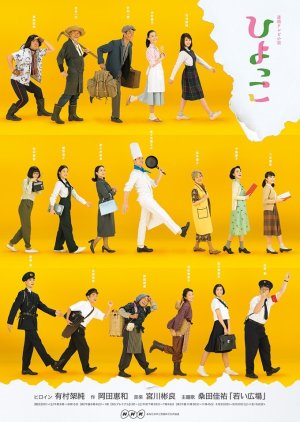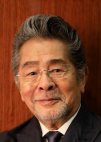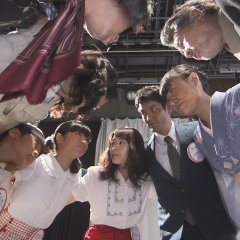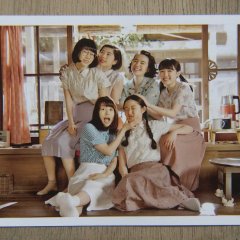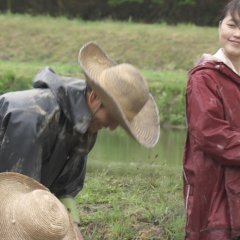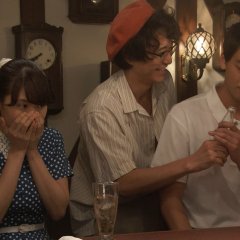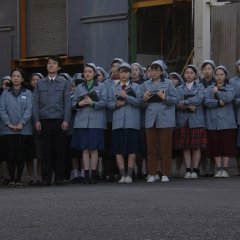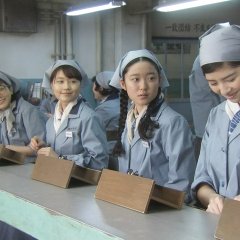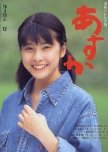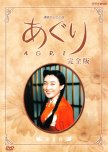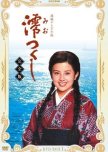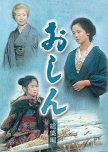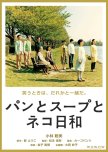 Japan's Top Young Talent: Part One
Japan's Top Young Talent: Part One The 17-year-old Yatabe Mineko grew up in a family of seven in a mountain village in northeastern Ibaraki Prefecture. Her father Minoru has gone to Tokyo to work in order to earn extra money. However, her life completely changes when her father does not come back for the New Year. Mineko asks her family to let her go to Tokyo to find him and promises to send money home. In the autumn of 1964, she and two childhood friends Tokiko and Mitsuo are hired to start working at a small factory in Tokyo’s working class neighborhood. After work each day, Mineko searches for her father and gets disheartened at times. Mineko overcomes challenges and starts to lay down roots in Tokyo as she experiences many meetings and farewells amid the laughter and tears with regulars, people of the shopping street, friends, and colleagues. But will she be able to find her father? Edit Translation
- English
- Español
- magyar / magyar nyelv
- dansk
- Native Title: ひよっこ
- Also Known As:
- Screenwriter: Okada Yoshikazu
- Director: Kurosaki Hiroshi
- Genres: Comedy, Romance, Life, Drama
Cast & Credits
- Arimura Kasumi Main Role
- Sawamura IkkiYatabe Minoru [Father]Support Role
- Kimura YoshinoYatabe Miyoko [Mother]Support Role
- Furuya IkkoYatabe Shigeru [Grandfather]Support Role
- Miyahara KanauYatabe Chiyoko [Younger sister]Support Role
- Takahashi RaiYatabe Susumu [Younger brother]Support Role
Reviews

"Hiyokko" is a drama that speaks of a rural Japan in the Olympic age of 64. A drama that adds cultural values to a story rich in details told by an acting cast aided by a beautiful soundtrack and flawless cinematography. Instead of having complex and fanciful themes, "Hiyokko" stands out for its simple and classic history with a focus on everyday life. As it says: Happiness is in the simple things of life. Good Drama!

Before that it's warm story taking place between 1964 and 1968 examining the migration of workers from rural provinces like Ibariki to urban centers like Tokyo. The spine of the plot is centered, lamentably, on an amnesia trope (a lame trope or the lamest trope?), and everything about one of the associated characters, Kanamoto Setsuko, makes no sense whatsoever. But that's about the sharpest criticism that can be leveled against this otherwise uniformly delightful morning drama.
The main character is charming enough, but the really great moments of the series fall to several of the tertiary characters who are still dealing with the consequences of WWII. The rapid changes of the 60s form the backdrop, and the Tokyo Olympics, Beatlemania, miniskirts and Twiggy all play a role in the lives of these characters.
Special mention also must be made to two of actresses, Sakuma Yui and Ito Sairi, who were in Transit Girls together a few years before. Sakuma's role is quite substantial as Mineko's best friend Tikiko who goes to Tokyo at the same time as Mineko and seeks to become an actress. Ito's role is much smaller but recurring, and the two do get a few scenes which had me as a fan of Transit Girls wishing for them to kiss (again).
As a whole, it's the usual high quality that one expects from an NHK asadora though personally I think Amachan deserves the higher rating between the two.

